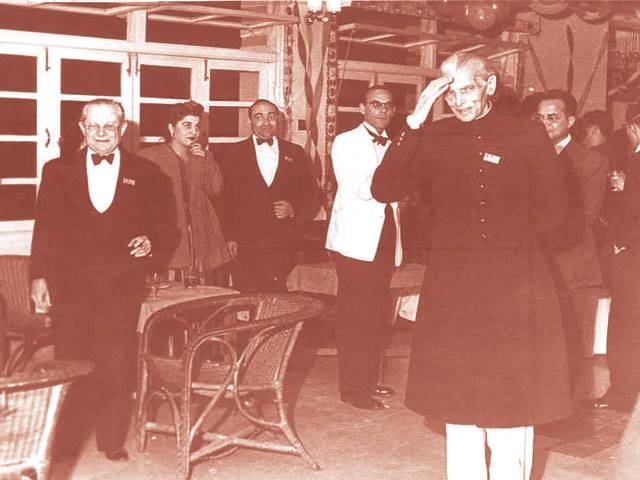M Salman Siddiqui
The founder of Pakistan, Quaid-i-Azam Mohammad Ali Jinnah, gave a motto ‘unity, faith and discipline’ through his personal example and instilled this message to the youth of his time and for future generations. He always considered youth an important asset of a nation and emphasised on education and discipline. Quaid-i-Azam believed that discipline was the staircase, which could help Indian Muslim students to achieve their goals. He once said: “Pakistan is proud of her youth, particularly the students, who are nation builders of tomorrow. They must fully equip themselves by discipline, education, and training for the arduous task lying ahead of them.” Perhaps Quaid knew that Muslims would have to face tough challenges in future and that’s why he emphasised on education, training and discipline. Youth had always been Quaid’s first priority. It can be known from the fact, that in 1941, when Raja Ghazanfar Ali, Quaid’s close admirer and Chief Minister Punjab Sardar Sikandar Hayat Khan desired to meet him, he politely refused because he was busy in attending annual congregation of Muslim Students Federation (MSF) and requested him (Sardar Sikandar Hayat Khan) to check for his schedule with the office bearers of MSF who were coordinating all his appointments during this period.
The story of Quaid’s life is as extraordinary as the story of the country he created for the Muslims of the Sub-continent. To achieve this target he sacrificed everything even his personal life. For more than forty years he fought a political and legal fight against the British and the cunning Indian politicians. This fight came to an end in 1947 when Pakistan, a new independent country, emerged on the map of South Asia.
The Quaid was a man of discipline since his childhood. According to his childhood friend Nanji Jafar once at the age of 14 Jinnah came to him when he was playing on the ground and asked him to stand up and warned to not spoil his clothes. The striking feature of Quaid’s personality was his personal grooming and his impeccable dress sense which he developed when in his very early age. He used to buy smart tailored suits from finest shops of England. He was very stylish and had an impressive personality.
The Quaid was one of the best lawyers of his time. After completing his law education he returned from England and started practicing law. Although his initial three years were very tough, but his talent could not remain hidden. His fellow lawyers said that he used to caste spell on the court room and his presentation was nothing less than the piece of art.
Quaid-e-Azam led a disciplined life and advised for the same. He was the man of commitment. He always fulfilled his promised and commitments. He always went meetings at the exact time for which he promised. Even in his last days when he was ill, he attended the inauguration of State Bank because he had promised to be there. That was Quaid’s last public appearance.
Our youth has many lessons and guidelines to learn from Quaid’s life. He advised unity, faith and discipline to Pakistani nation. We have to look upon that whether we are following that path? When there is huge gathering at bus stop, or long queues in banks, people push each other to get in the bus or to come in the front line. This violates discipline and people have to face difficulties. We are facing extreme sectarian violence. We can solve these problems if we act upon our Quaid’s motto ‘unity, faith and discipline’ which he gave to us long before. If we want to move forward, we have to follow his principles. Unity means, all Pakistanis should be united without having any provincial biasness and sect discrimination. Faith means, start struggle at your end, and have faith on Allah. And discipline means to follow the rules and regulations. In this way our nation can fulfil Quaid’s vision. n
Thursday, November 21, 2024
Unity, faith and discipline

Former test spinner and umpire Nazir Junior passes away at 78
3:59 PM | November 21, 2024
Suspected Bandit killed in Wazirabad police encounter
3:57 PM | November 21, 2024
Four monkeys cause stir in Karachi
3:55 PM | November 21, 2024
Russia confirms attack with UK-made Storm Shadow missiles on its territory
3:49 PM | November 21, 2024
PSX hits historic 97,000 mark amid positive investor sentiment
3:44 PM | November 21, 2024
-
Hunger crisis to increase in South Sudan, warns UN
-
Hunger crisis to increase in South Sudan, warns UN
-
Pakistan’s judiciary champions climate justice at COP29 in Baku
-
Punjab struggles with persistent smog as Met Office forecast rainfall
-
Punjab residents face escalating smog crisis as pollution levels soar across country
-
Qatar says Hamas 'no longer welcome' in Gulf state
Land of Vigilantes
November 21, 2024
United in Genocide
November 21, 2024
Finally Fighting Back
November 21, 2024
Digital Stagnation
November 20, 2024
Xi’s Red Lines
November 20, 2024
Independent Supreme Court
November 21, 2024
Fat Loss Fantasy
November 21, 2024
Tackle Corruption Within School Boards
November 20, 2024
To Be Opportunistic
November 20, 2024
Democratic Backsliding
November 20, 2024
ePaper - Nawaiwaqt
Nawaiwaqt Group | Copyright © 2024





